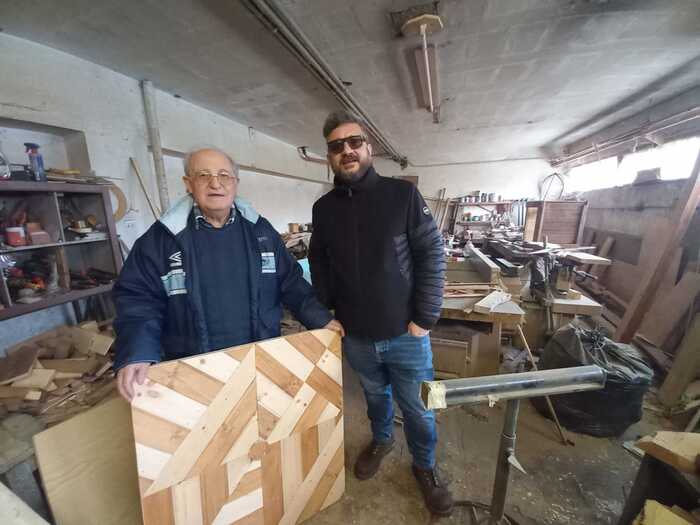Furniture, doors, windows - carpenters take care of everything that has to do with wood. You should definitely have a passion for the material. And what else is important?
Berlin (dpa / tmn) - At the age of five, she had a drilling machine in her hand for the first time. And she had the greatest joy as a child when she was able to assemble a shelf with her parents. It is not surprising that Marly Konefka is becoming a carpenter.
However, the 37-year-old did not take the direct route to the trade. She became pregnant at 17, and after the birth of her child, she initially decided to train as a medical assistant. "I just wanted to secure myself at the time. As a single parent, I always worked part-time, so that seemed like a good option."
A few years ago, the decisive factor in changing careers was not least the move to a new apartment - with many construction sites. "For example, I installed a solid wood kitchen myself," says Konfeka. "And it still stands."
On the second educational path into the craft
In an internship, someone finally drew her attention to the offer of the educational provider GFBM (non-profit organization for vocational measures) in Berlin. Here Marly Konefka is doing part-time retraining for two and a half years. The end result is the same degree and the same exam as graduates of the three-year dual training course.
A typical working day for Marly Konefka starts at 7 a.m. in the GFBM workshop. The part-time students work on various projects from the current teaching modules until 2 p.m. At the beginning they learn the basics of wood processing and processing. "For example, it's about slot or pin connections, for example for picture frames," says Konefka. After the basics come bigger projects like first pieces of furniture.
Anyone who is interested in the profession should above all bring a passion for wood. In addition, the mastery of basic arithmetic and a basic technical understanding are among the prerequisites. "You shouldn't have to use a calculator every time you have to calculate the floor space of a room on the construction site," says Arne Bretschneider, head of the vocational training and technology department at Tischler Schreiner Germany.
Wood surprises with the processing
Marly Konefka is particularly fascinated by the element of surprise in her work. "Every wood feels different, every wood behaves differently when processed." She can also do a productive job, she says. "I like the possibility that a piece of wood can be used to make a commodity - which another person can then enjoy."
"The design part of the work is very important," adds Bretschneider. Carpenters also advise customers on design issues so that a product fits well in the living room or office.
Don't underestimate the physical side of work. "It's tiring," said Konefka. "I usually only notice how broken I am after work in the train." Under certain circumstances, carpenters are also used in structural work - it is cold in winter and hot in summer.
Machines are becoming more important
Of course, carpenters or carpenters don't do everything with pure physical strength. But handling the machines also needs to be learned. "We make various machine certificates during the training so that safe work in the machine room is guaranteed," explains Konefka.
Technically, a lot is changing in the industry. Carpenters are increasingly producing drawings on the computer, and the use of machines is also increasing, according to Bretschneider. "But there are regional differences. And not every carpentry is equipped with a computer-assisted machining center." However, trainees can decide whether they would rather work in a modern or traditional company.
Around 600 euros in the first year of training
According to the Federal Association of Carpenters and Joiners, remuneration averages € 604 gross per month in the first year of training, € 726 in the second year, and € 852 in the third year.
After completing their training, journeyman can join a master, or use their specialist qualifications to start their studies. "With good performance and the right attitude, everyone in the craft can make a career," says Bretschneider.
Job profile at Berufenet
Website of the Bundesinnungsverband
Info GFBM








